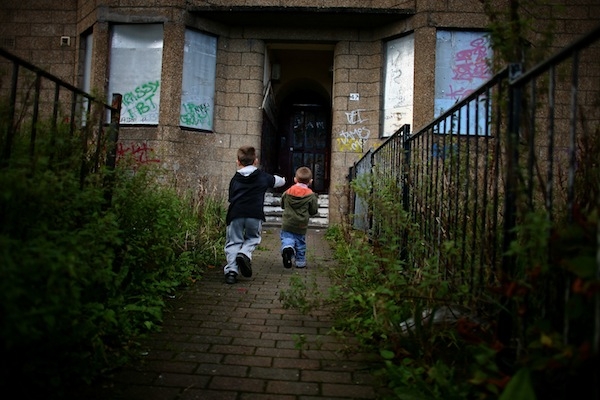Louise Casey’s report on troubled families has come in for a few knocks today. The ‘troubled families tsar’ interviewed 16 families to draw up a picture of the challenges that those within the 120,000-strong group that the Prime Minister identified after last summer’s rioting as in need of focused work.
Peter Mullen in the Telegraph says the research spells out ‘the blinking obvious’, which in many ways it does: the lives of the families on this list are messy beyond most people’s normal experience. Casey has simply conducted a very small-scale exercise in qualitative research and then published it.
Like many CoffeeHousers, I’m more of a quantitative data person myself. I do love a good graph, and if I’m really lucky, a whole spreadsheet of figures to chart out the progress of a government policy.
But the value of this collection of life stories is that it does show in graphic detail just how very complex each one of these ‘troubled’ families is. A family where the children have different fathers, where the mother has been raped, has depression, and cannot cope with her children, especially as they grow older, and has no personal experience of good parenting herself is what confronts the policymakers as they attempt to ‘turn around’ that family by the next election. Those were the words that David Cameron used when he launched this initiative: ‘turn around the lives of the 120,000 most troubled families’. Reading some of these stories, which are all wretched and saddening, that pledge to turn around those lives looks like a very bold one indeed. It’s not as if these ‘troubles’ are just one child kicking off at school and breaking neighbours’ windows: they’re violent ex-partners, children with ADHD and complex medical needs, and mothers who admitted quite candidly to Casey that they have no idea how to parent. Many of the stories conclude with the mother entering another violent relationship, and there is very little mention of paid work.
All of this is blinking obvious, in one respect, in that we already know that poor parenting is passed down through generations, and that stable families benefit children as they grow up and move through school. But in another, this report is instructive. These lives are so messy that I suspect reform of the welfare system will pass many of the families by. In these stories there is no calculated decision to opt out of the labour market because of our generous benefits offer, more an endless failure to cope with life and the way it has worked out.
These stories show what a chart would not: that a troubled family needs the sort of intervention from a dedicated social worker that Cameron, Eric Pickles, and Louise Casey have been pushing for. The question is whether they’ll really have any chance to turn around 120,000 stories like the 16 we read this morning by 2015.







Comments